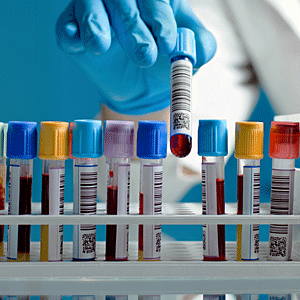
With an estimated one in three people in the developed world expected to develop cancer in their lifetime, the search for a cure has never been this urgent.
At the 2015 American Society of Clinical Oncology (ASCO) annual conference in Chicago, USA, held from 29 May to 2 June scientists and researchers have brought new hope to this search with a host of developments relating to treatment of cancer and of which immunotherapy is shining like a bright new light.
Roy Herbst, the chief of medical oncology at Yale Cancer Centre told reporters at ASCO that the results are 'spectacular' and
Herbst remarked that the therapy would be especially beneficial in treating stubborn cancers and that an effective cure has finally been found. Researchers expect the new drug combo to become standard treatment in the near future.
Read: Advances in immunotherapy come under the spotlight
Conventional treatment vs immunotherapy
When it comes to cancer the most popular methods of treatment are chemotherapy, radiation therapy and surgery, none of which at this point can be considered a cure.
That could all be about to change, though, after news was announced at the ASCO conference that new advances in immunotherapy can treat and even cure a wide range of cancers, and are effective in more than 50% of cases.
What's most exciting about these findings is that it shows that the body can fight cancer itself, albeit with the assistance of some expensive drugs referred to as immune checkpoint inhibitors.
Immune checkpoint inhibitors are cancer treatment drugs that prevent immune system cells from being "turned off" by cancer cells, thus shielding the tumours from being attacked by the body's immune system.
Three drugs have been approved for immunotherapeutic application in this regard: Ipilimumab (Yervoy; Bristol-Myers Squibb), Nivolumab (Opdivo; Bristol-Myers Squibb), and Pembrolizumab (Keytruda; Merck Sharp & Dohme Corp).
How does the immune system work?
Jack Howard West, MD, explained the mechanism in an article on immunotherapy and the use of immune checkpoint inhibitors in the treatment of cancer in the Journal of the American Medical Association as follows:
"During an immune response, the immune system turns on to attack potentially harmful agents. The immune system also has ways to turn off. This limits the immune response and prevents damage to healthy tissues.
T lymphocytes, or T cells, are immune system cells that can kill cancer cells. A T cell has special locations on its surface called receptors. Other cells or molecules attach to these receptors and turn the T cell on (which is known as activation) or off."
Read: Proton beam therapy saved this child's life
How does immunotherapy work?
Immunotherapy works by ensuring that T cells aren't turned off when they shouldn't be, as cancer cells like to do, that way the human immune system can identify and attack cancerous cells and thus hopefully shrink or eradicate tumours.
What are the side effects of immunotherapy?
Because immune checkpoint inhibitors prevent T cells from being turned off, these drugs affect the balance of the immune system.
In addition to infiltrating tumors, activated T cells can attack the body’s own cells. This is called an autoimmune reaction and occurs in about 10% of patients taking these drugs.
Autoimmune reactions are of course the hallmark of several other illnesses, such as Lupus and HIV/AIDS, but the reaction brought about by immunotherapy is designed much more restricted.
What are the side effects?
Immune-related side effects usually occur 6 to 12 weeks after starting treatment and may include diarrhoea, a rash, difficulty breathing, eye irritation, yellowing of the skin (jaundice) and changes in energy levels.
In a 2015 article in Journal of Clinical Oncology, Michael Andrew Postow, MD, of Memorial Sloan-Kettering Cancer Center, wrote that, in rare cases, toxicities may be severe and potentially life-threatening. Most side effects, however, are reversible if they are managed using immunosuppressive medications such as steroids.
Read: Advances in immunotherapy come under the spotlight
The study that proved the efficacy of immunotherapy
The key study, published in the New England Journal of Medicine, details how immunotherapy using the drugs Ipilimumab and Nivolumab was administered to 945 patients with advanced melanoma. The treatment was ultimately effective in more than half of the patients in the trial, with tumours either completely eradicated or shrinking.
In most of the cases (more than half), the tumours receded or stabilised for nearly 12 months and in more than one in 10 cases the combination of drugs completely wiped out the tumour.
Combining the two drugs had a greater effect than using only one. Peter Johnson, Professor of Medical Oncology at Cancer Research UK says the treatment works by re-educating the immune system, while Dr Alan Worsley, Cancer Research UK's senior science information officer, told the Guardian that "Together these drugs could release the brakes on the immune system while blocking cancer's ability to hide from it.'
The drug Ipilimumab is administered intravenously every three months and Nivolumab is administered once every two weeks.
Dr Worsley said that the combined treatment's side-effects weren't nearly as serious as a terminal illness and also present a much less destructive and painful alternative to chemotherapy, which is known to ravage the body and only prolongs life by an average of nine months.
“The evidence emerging from clinical trials suggests that we are at the beginning of a whole new era for cancer treatments,” he added, also saying that the types of cancer affected by the treatment kill up to 50 000 people every year – around one-third of all cancer deaths.
This is echoed by lead author Dr. James Larkin of the Royal Marsden Hospital: “For immunotherapies, we’ve never seen tumor shrinkage rates over 50 percent so that’s very significant to see,” he was cited as saying in The Telegraph. “This is a treatment modality that I think is going to have a big future for the treatment of cancer.”
But can you afford it?
The treatment is prohibitively expensive at this stage, with costs reaching $150 000 (R1 850 000) for a year of treatment. Leonard Saltz, MD, of Memorial
When will it be available?
According to Cansa.co.za, the new immunotherapies are approved (in the United States) for use only in melanoma and lung cancer, but they are showing promise in many other cancer types, and experts believe that they will soon form the backbone of all cancer therapy.
With regards to South Africa, patients need to know that new cancer treatments are not always immediately available to those who need it. Once a treatment has been developed, it has to undergo rigorous clinical trials before the medicine can be finally registered, and this can take years.
Once a drug is approved by a regulatory authority like the United States Food and Drug Administration (FDA), these immunotherapy drugs need to be registered with the Medicines Control Council (MCC) in South Africa before it becomes available to be prescribed by oncologists. This registration process may also take a considerable period of time.
The use of Bristol-Myers Squibb's Ipilimumab for stage-four melanoma became available in South Africa in January 2015 after being approved by the Medicines Control Council for stage-four melanoma.
TimesLive reported earlier this year on a case of a woman who had stage-four melanoma and who was successfully treated by Daniel Vorobiof, director of the Sandton Oncology Clinic. She was the first South African accepted into the global phase-three clinical trial and received four infusions of ipilimumab. Nine years later she is cancer-free.
We asked Dr Vorobiof about the latest development and he says that immunotherapy, which has been a science in progress over the past 10-15 years, is becoming one of the new pillars in the treatment of cancer.
"We are able to treat more patients and better than before with the new immunotherapy drugs, but I will caution against the use of the words breakthrough and cure.
There is a long way to be able to support those definitions and the clinical trials are continuing and maturing, so more data and understanding will become available in years to come.
One of the reasons why new cancer treatments are so expensive is because the developer of the medicine needs to be compensated for their research, which adds to the cost.
Sources: ASCO, CANSA, JAMA Network, New England Journal of Medicine.
Read more:
Test your risk of developing cancer
New vaccine developed to fight aggressive cancers
Cyberknife therapy saves Clive Rice's life




 Publications
Publications
 Partners
Partners











